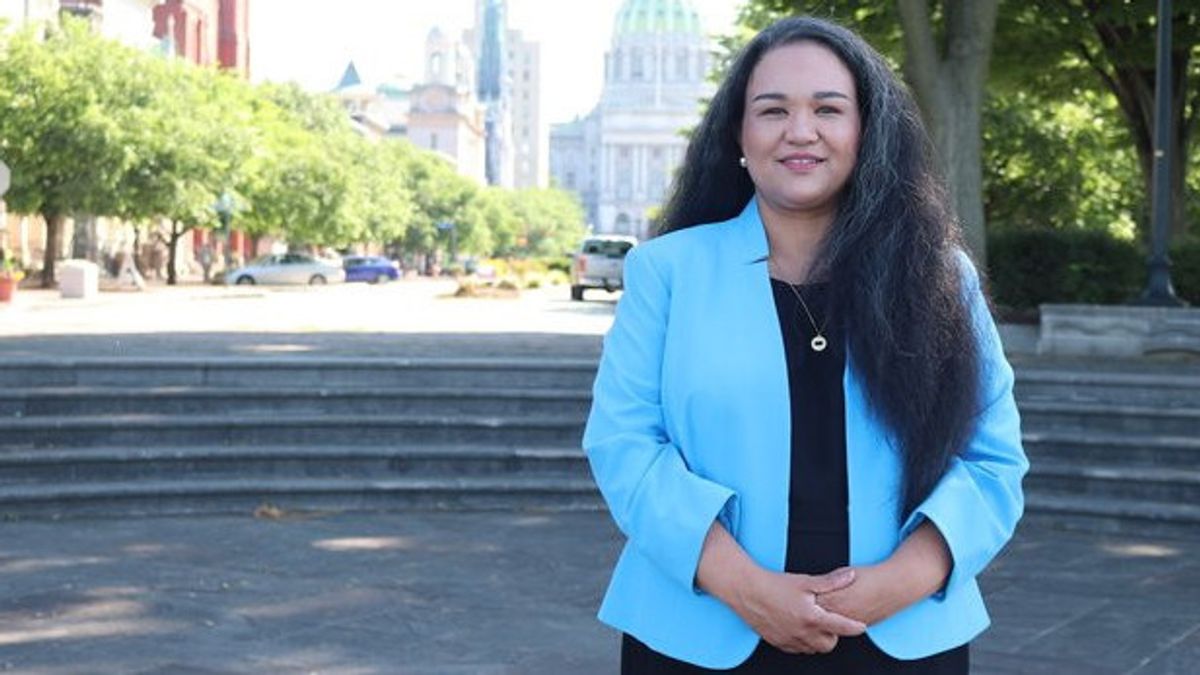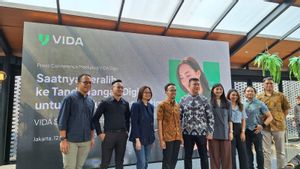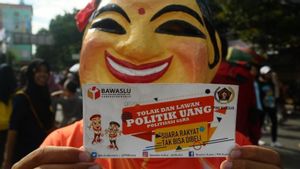
JAKARTA - US Democratic Party politician, Shamaine Daniels is running for Congress. He is eyeing a seat currently held by Republicans allied with Donald Trump, Scott Perry, who plays a key role in challenging the 2020 election results.
Daniels, who lost to Perry by a margin of less than 10 points last year, hopes the new weapon will help his underdog campaign: Ashley, an artificially intelligent campaign volunteer.
Ashley is not an ordinary robocaller; there is no response that has been prepared or recorded beforehand. Its creators, who intend to work primarily with campaigns and Democratic candidates, say that it is the first political phone call maker to be powered by a genative artificial intelligence technology similar to OpenAI's ChatGPT. It is able to undergo an infinite number of adapted one-on-one conversations at the same time.
Ashley is one of the early examples of how generative artificial intelligence brings into a new era of political campaigns where candidates use technology to interact with voters in an increasingly difficult way to track.
For some people, this is an exciting new tool for high-quality conversations on a large scale. However, there are concerns that this will exacerbate disinformation in America's already polarized political landscape, already battling "deepfakes," realistic videos and images created using artificial intelligence algorithms.
Over the weekend, Ashley called thousands of voters in Pennsylvania on behalf of Daniels. Like experienced campaign volunteers, Ashley analyzed the voter profile to draw up conversations that were adapted to their key issues. Unlike humans, Ashley is always ready for work, has perfect memories of all the positions of the Daniels, and is not disappointed when someone closes the phone.
"It will develop rapidly," said Ilya Mouzykantskii, CEO of Civox, the company behind Ashley. "We plan to make tens of thousands of calls every day by the end of this year and reach six digits in no time long. This will come for the 2024 elections and come in a very big way... The future is in sight."
For Daniels, this tool makes the condition more balanced: as an underdog, it is now equipped in other ways to better understand voters, reach them in various languages (Ashley is fluent in more than 20 languages), and have more "highbandwidth" conversations.
However, this development has many people worried, including OpenAI CEO Sam Altman, who testified in Congress in May that he was "worry" about the ability of generative artificial intelligence to compromise election integrity through "interactive one-on-one disinformation."
This technology, learning from a large amount of internet data, has become so good in realistic conversations that in recent months, people have fallen in love and stated that they want to marry an artificially intelligent chatbot.
Mouzykantskii said he was fully aware of potential losses, and did not intend to take venture capital funding that might persuade him to prioritize profits above ethics.
Like OpenAI, he founded an unusual governance structure: a committee authorized to force himself to publicly disclose everything that raises concerns about the company. Civox has decided to voice a robot to Ashley and revealed that it is an AI, although legally it is not required to do so.
Mouzykantskii and colleagues Adam Reis, former computer science students at Stanford University and Columbia respectively, declined to reveal the right generative artificial intelligence models they used. They only say that they use more than 20 different artificial intelligence models, some propitaries and some open source.
Thanks to the latest generative artificial intelligence technology, Reis was able to build the product almost completely alone, while a few years ago, it would take a team of 50 engineers over a few years to do so, he said.
"I don't know under federal law what is illegal," said Robert Weissman, president of the non-profit consumer advocacy organization, Public Citizen.
Michigan is one of several states that has gone through or are currently discussing legislation to regulate deepfakes in elections. Pennsylvania, where Daniels ran for office, does not have the law.
There are no rules that apply directly to what Civox does. Federal Trade Commission regulations prohibit phone marketers from making robo calls to people registered on the Don't Disturb List, but this list does not apply to political calls - and Civox activity, with its "personal" message, does not qualify as a robo call.
The Federal Communications Commission prohibits voice calls related to automated campaigns or voice recordings, including automatic live voice calls to mobile phones without prior consent from recipients. The FCC is also starting an official investigation into how artificial intelligence technology affects illegal and undesirable robo calls.
관련 항목:
The Federal Election Commission has begun to consider regulating the use of AI in campaigns. None of these rules apply to the way campaigns use Mouzykantskii technology.
Mouzykantskii said that he welcomes regulations, given the potential for this technology to spread disinformation. Other companies are likely to create AI calls that sound almost identical to real humans and don't reveal that the summoners were produced by AI, he said.
"This should trigger thoughts about how close we are to some future versions that were previously only available in science fiction films and books," he said. "And that's enough to make regulators and legislators, not only in the United States but globally, starting to pay attention."
David Fish, 63, is happy to hear from Ashley even though he can immediately find out that it's not human.
"This makes me interested," he said. "The thing I like is that he identifies himself as an AI and is not trying to deceive me."
The English, Chinese, Japanese, Arabic, and French versions are automatically generated by the AI. So there may still be inaccuracies in translating, please always see Indonesian as our main language. (system supported by DigitalSiber.id)

















